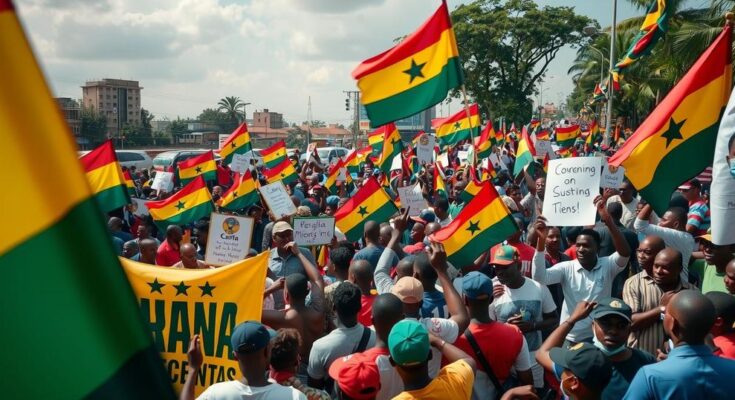The 2024 elections in Ghana are facing scrutiny over election financing, with costs projected to exceed previous spending. The Electoral Commission’s budget is expected to rise to GH 786.9 million ($52 million) due to increased expenditures, while estimates suggest winning the presidency could require GH 1.5 billion ($100 million). Concerns linger about the impact of illicit funding and corruption on the electoral process.
The upcoming 2024 elections in Ghana are raising concerns regarding the cost of conducting elections and financing campaigns. Recent studies highlight that election financing in Ghana, like in many other African nations, has become entangled with corruption, with suggestions that funds may originate from illicit activities. This has led to heightened scrutiny regarding how election financing affects candidates’ opportunities and the overall integrity of the electoral process.
In 2020, Ghana’s Electoral Commission reportedly spent over GH 760 million ($51 million), with current projections indicating an increase to GH 786.9 million ($52 million) for the 2024 elections. This includes significant allocations for compiling voter registries, conducting the elections, and voter education. Meanwhile, estimates suggest that winning the presidential election may require at least GH 1.5 billion ($100 million) due to high campaign costs, including constituency projects, media advertisements, and bribery concerns related to voter mobilization. For parliamentary candidates, costs can reach a minimum of GH 9 million ($600,000).
Legislation such as the Political Parties Act of 2000 governs campaign financing, yet there are loopholes that permit candidates to accept foreign contributions, a matter that civil society groups hope will be addressed. The current political climate reflects a troubling culture where illicit funding could undermine the electoral process and corrupt governance. Until these financial issues are regulated effectively, the costs associated with winning elections in Ghana are likely to remain prohibitively high, particularly for candidates from the two dominant political parties.
Election financing has become a critical issue in African democracies, where high costs and potential corruption influence the political landscape. In Ghana, there are growing anxieties about how campaign financing affects fairness and access for candidates, especially as illicit funding sources are suspected to play a role in federal elections. The impact of economic conditions, such as the ongoing IMF bailout and cost of living crisis, further complicates the expenditure on elections, as civil society voices concerns about the implications for democratic processes and governance.
The electoral process in Ghana is increasingly overshadowed by the exorbitant costs of conducting elections and financing campaigns, leading to concerns about corruption and the integrity of democracy. With substantial amounts required to win elections, particularly for presidential candidates, there are fears that such financial demands may deter genuine candidates and perpetuate a cycle of corruption. It is imperative for legislative measures to be strengthened and for a more transparent approach to campaign financing to be adopted, ensuring that Ghana’s political system remains accountable and representative.
Original Source: www.bbc.com




